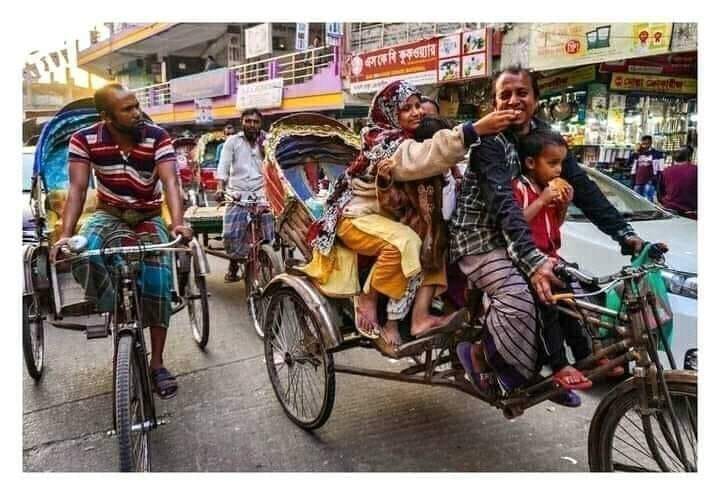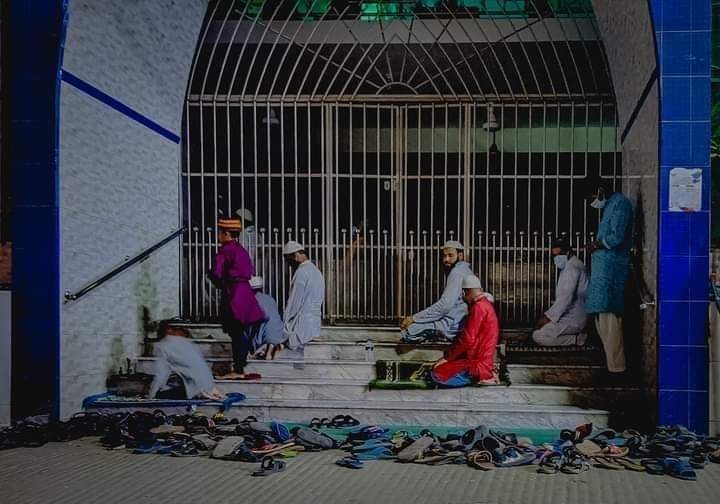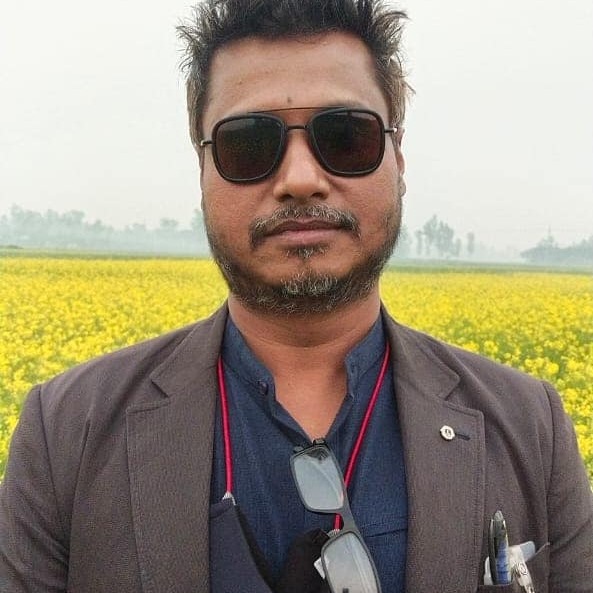SPIRITUALITY
As part of the series on Ramadan amidst the co-vid 19 pandemic, Pressenza interviewed Mohammad Nazrul Islam Jashim. Mohammad is currently the country representative of the Community for Human Development. An international socio-cultural organization inspired by the principles of the Humanist Movement, its members are developing blood donation activities in Dhaka, Bangladesh. In Coc’s Bazar which is located in the southern part of the country, the project is a charity school for fishermen children. This year, 43 students have enrolled in two different classes. It is called the Humanist School of Coc’s Bazar.

City streets in Dhaka during the pandemic.
Karina L. Santillan: Salam, Mohammad. It is my pleasure and honor that you agreed to take part in this interview. Please tell us about yourself, the place you come from, and your belief system about the religious observance of the Holy month of Ramadan.
Mohammad Nazrul Islam Jashim: Wa ʿalaykumu s-salam (may peace be upon you), My name is Mohammad Nazrul Islam Jashim. I am also pleased to take part in such an interview in this co-vid pandemic situation. I am from Dhaka, the capital of Bangladesh, which is situated in the south Asian region of Asia. Every year, Ramadan comes to the Muslim world with happiness and great opportunity to do only good things to humanity as in the other months of the year. Fasting from sunrise to sunset is fard (obligatory) for all adult Muslims who are not acutely or chronically ill, traveling, elderly, breastfeeding, diabetic, or menstruating. The predawn meal is referred to as suhur, and the nightly feast that breaks the fast is called iftar after sunset of the day. The spiritual rewards of fasting are believed to be multiplied during Ramadan. Accordingly, Muslims refrain not only from food and drink, but also tobacco products, sexual relations, and sinful behavior, devoting themselves instead to salat (prayer) and recitation of the Quran.

KLS: During this lingering pandemic, which aspect of your belief system and spiritual practice is helping the Muslim community alleviate the sufferings of people? How is your religion supporting your community to cope with the impact of this life-threatening virus?
MNIJ: Muslim means he is submitter to Almighty Allah. So as Muslims, we practice an interesting lifestyle. For example, we always wash our faces, hands and legs after coming back from outside. We wash our face, hands and legs 5 times a day before we say prayers to Allah; it is called Ozu. So we are aware of cleanliness and using masks like how you can see Muslim women wear Burkha and Hizab, it was said to be in use 1400 years back. Now, in this pandemic situation, doctors are saying to use masks. So all Muslims are very aware of cleanliness. About the pandemic, it was said in the Hadith that no people will go in such a place or come out from there while the pandemic situation continues, which is now said by health organizations. Also, it was said not to make any gathering in such a place. So you can see the lifestyle of a Muslim is different and they are ready for the situation. Our Imam ( Religious Leader) rapidly responded and said to obey all the health concern issues issued by the Government, like not to get together more than 10 people in a mosque while praying, Muslim Haj and Umra was stopped by the Saudi Arabian Government at the Holy city, Macca & Medina. Now you can see that by responding rapidly, Medina is Co-vid free city of the World.
Muslims are trying to help internally as well as externally to support overcoming the situation. The Imams are guiding from time to time, financial support is also given by the community using Zakat, Sadakah, Fitr & Donations. Sometimes the money is put all together and sometimes individually. Also, another interesting thing is, what most of Muslim people do in Ramadan is Giving Zakat to the Poor People. Zakat is a form of almsgiving to the Muslim Ummah. Treated in Islam as a religious obligation or tax, It is customarily 2.5% (or 1⁄40) of a Muslim’s total savings and wealth above a minimum amount known as nisab, so you can see a huge amount of money is donated in the name of Zakat at Ramadan which means a huge amount of money flows in the Muslim world.
KLS: It has been more than a year that health protocols were enforced, what are the innovative and creative ways of engaging with the broader Muslim community as you spend time for reflection, worship, and connection during the month of Ramadan?
MNIJ: Muslims always try to adapt to any situations that arrive and Muslim Scholars always respond rapidly with any new situations. Coved 19 is new but Pandemic situations are not new to our history, that’s why the response came rapidly and the involvement is also a respectable number. When a lockdown is declared, all the Muslims stay in-home, in the past, we pray at the mosque. But in the pandemic, since March 2020, we started to pray at home with all of our brothers, kids and relatives by making Jamat. Tt is totally innovative and by the Muslim Scholars, it is permitted.
KLS: Muslims are admired for their recitation and devotion to the 99 names of God. Which one is most helpful for you during this pandemic?
MNIJ: All the 99 names of Almighty Allah have a separate meaning, so every name is special for any situation, but in the pandemic, we asked for Mercy and from the 99 names it is very close to Karim, Rahaman, Rahim What means Allah is always merciful.
KLS: As a Muslim, what are your dreams for humanity’s better future? What has this critical time of covid19 taught you as a believer of Islam?
MNIJ: As a Muslim, our dream is to have a humanist society, because by saving humanity we can have a coherent world. We have to try to be More Human. Only this word I can imagine from my Muslim beliefs.
KLS: Share your message of solidarity and hope for the month of Ramadan amidst the covid19 pandemic.
MNIJ: We hope this pandemic situation will be over and a universal human nation will arise.












